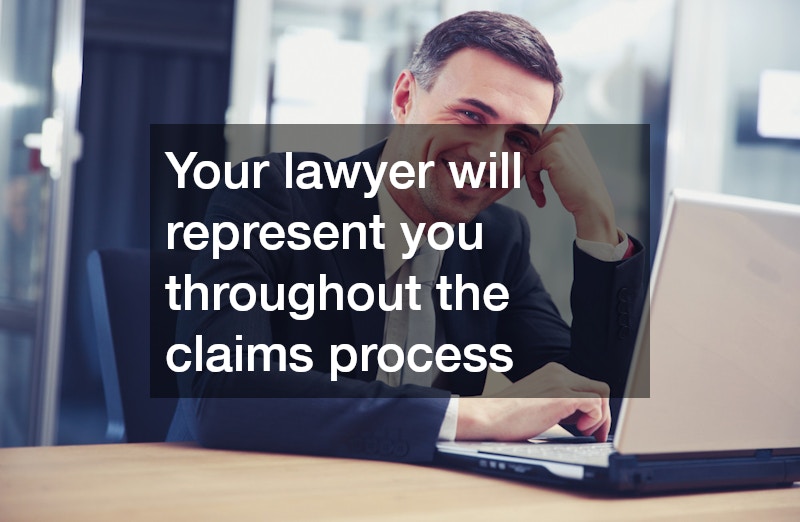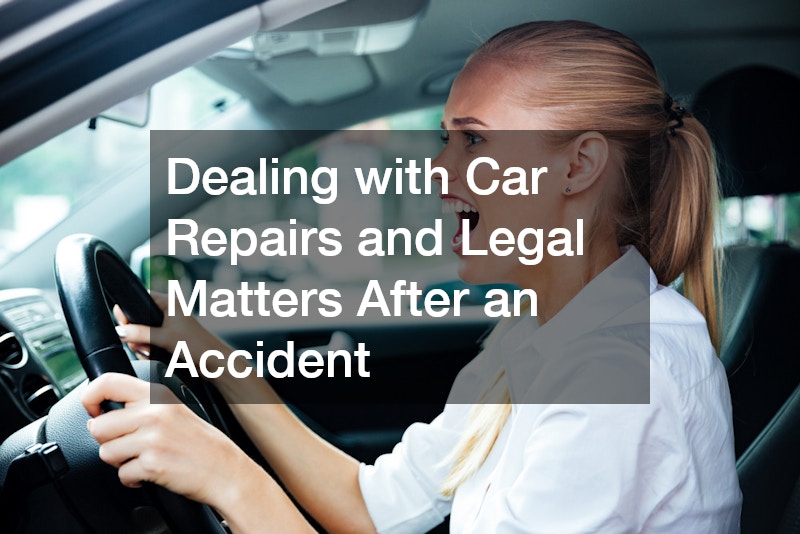Being involved in a car accident can be one of the most stressful and overwhelming experiences in life. Beyond the immediate shock of the incident, you are often left to navigate a complex web of legal processes, insurance claims, and vehicle repairs—all while potentially dealing with injuries and emotional distress. Whether it’s your first accident or you’ve faced this situation before, having the right guidance can make all the difference in ensuring a smoother recovery.
This comprehensive guide aims to empower Australian drivers with practical advice on managing car repairs and legal matters following an accident. It offers step-by-step instructions, from finding a reliable lawyer to understanding insurance policies and selecting a trustworthy repair shop. You’ll also learn how to handle medical bills, diminished value claims, and other legal intricacies that can arise after an accident.
-
How to Find a Reliable Lawyer

Finding a trustworthy lawyer with experience in motor vehicle accident claims is essential. Begin by researching local car accident lawyers with expertise in personal injury and a proven track record of success.
Reading reviews and testimonials from past clients can provide valuable insights. Schedule initial consultations to evaluate their communication skills, experience, and suitability for your case.
Take your time to select a lawyer you trust and feel comfortable with. A reliable lawyer can guide you through the legal system, negotiate with insurers on your behalf, and help secure the compensation you deserve.
-
The Role of an Accident Lawyer
Once you hire a lawyer, they will play a crucial role in your case, particularly when it comes to repairing your car and addressing legal matters after an accident.
Your lawyer will represent you throughout the claims process, negotiating with insurance companies to secure a fair settlement. If negotiations fail, they will represent you in court. Having an experienced lawyer ensures your rights are protected, and they will work tirelessly to achieve the best outcome for you.
By entrusting your case to a reputable lawyer, you can focus on recovery while they handle the legal complexities. They will advocate for you every step of the way.
-
Understanding Car Insurance Coverage
Understanding your car insurance coverage is critical when addressing repairs after an accident. Policies may include liability, collision, and comprehensive coverage. Knowing the specifics of your policy and how it applies to your situation is essential.
File your claim promptly with all necessary documentation to support it. Dealing with insurance adjusters can be challenging, but a knowledgeable lawyer can help simplify the process and ensure fair compensation.
Review your insurance policy thoroughly and seek clarification from your insurer or lawyer if needed. A clear understanding of your coverage can make a significant difference in the outcome of your claim.
-
Selecting a Repair Shop
Choosing the right repair shop is vital to ensure your vehicle is repaired safely and efficiently. Seek recommendations from friends, family, or your insurance provider. Look for repair shops specialising in accident repairs and experienced in your vehicle’s make and model.
Verify the shop’s certifications and licensing to ensure they meet industry standards. Obtain multiple quotes to compare prices and services, but remember that the cheapest option may not always be the best.
A reputable repair shop should offer services such as brake repairs, auto glass replacement, and other essential repairs. Ask about warranties on parts and labour to protect your investment.
-
Repairing the Damage
Once you’ve selected a repair shop, work with them to assess the damage and establish a timeline for repairs. Depending on the extent of the damage, repairs could take anywhere from a few days to several weeks. Stay in regular communication with the repair shop for updates.
Be prepared for potential delays due to unforeseen issues, parts availability, or scheduling conflicts. Trustworthy repair shops will keep you informed and work diligently to restore your vehicle to its pre-accident condition.
If you encounter significant delays or poor-quality workmanship, address your concerns with the repair shop or consult your lawyer. Your safety and satisfaction should always be prioritised.
-
Renting a Car

While your car is being repaired, you may need to rent a vehicle. Check if your insurance policy includes coverage for rental cars. If not, consider additional coverage from the rental company.
Choose a rental provider with a wide selection of vehicles to suit your needs. Ensure you return the car on time and in good condition to avoid extra fees. Keep a copy of the rental agreement and understand your responsibilities.
Driving a rental car can provide convenience while your vehicle is being repaired. Stay safe on the roads and maintain clear communication with your insurer and repair shop to coordinate your rental period.
-
Understanding Diminished Value Claims
Following an accident, your car’s value may decrease, even after repairs. This reduction in resale value is known as diminished value.
In some cases, you may be eligible to file a diminished value claim with your insurer. A lawyer with experience in these claims can help negotiate fair compensation for the loss in value.
Don’t overlook the impact of diminished value on your vehicle. Seeking compensation can help you recover some of the financial loss caused by the accident.
-
Managing Medical Bills
If you’ve sustained injuries in the accident, medical expenses can quickly accumulate. Understanding how to handle these costs is essential to avoid financial strain.
Check if your car insurance policy includes medical payments coverage. Your private health insurance may also cover some expenses related to the accident. Keep detailed records of all medical costs, including bills, receipts, and insurance statements.
A lawyer can assist in negotiating with insurers and medical providers to ensure your medical bills are covered as part of your claim.
-
Compensation for Pain and Suffering
In addition to physical injuries, victims of car accidents may be entitled to compensation for pain and suffering. This type of compensation accounts for the emotional distress, mental anguish, and the overall impact the accident has had on your quality of life.
Calculating pain and suffering can be complex, as it involves factors such as the severity of your injuries, the duration of your recovery, and how the accident has affected your daily life and well-being. An experienced lawyer can help you accurately assess the value of your claim and advocate on your behalf during negotiations with insurers.
Seeking compensation for pain and suffering is not just about monetary relief; it’s about acknowledging the emotional and psychological toll the accident has taken. Don’t underestimate the significance of this aspect of your claim. Work closely with your lawyer to ensure that your pain and suffering are fairly addressed as part of your overall compensation.
-
Understanding the Legal Process
Navigating the legal process after a car accident can be daunting, especially when you’re already dealing with the physical and emotional aftermath. The process typically unfolds in several stages, including pre-litigation, filing a lawsuit, and potentially appearing in court.
During the pre-litigation phase, your lawyer will take the lead by collecting crucial evidence, such as police reports, medical records, and witness statements. They will also handle negotiations with insurance companies, working to secure a fair settlement without the need for court intervention. If a satisfactory resolution cannot be reached, your lawyer will move forward by filing a lawsuit on your behalf.
Should the case proceed to court, your lawyer will act as your advocate, presenting evidence, building a compelling argument, and fighting for your rights. Their expertise ensures that your case is handled professionally and that you have the best chance of a favourable outcome.
Trusting an experienced lawyer to guide you through this intricate process not only alleviates stress but also increases your chances of achieving a resolution that fairly compensates you for your losses. Having a reliable legal expert by your side allows you to focus on recovery while they handle the complexities of the legal system.
-
Resolving Disputes
Disputes can emerge at various stages of your claim, but there are effective ways to resolve them without resorting to lengthy court proceedings. Alternative dispute resolution (ADR) methods, such as mediation and arbitration, often provide quicker and less adversarial solutions.
In mediation, a neutral third party facilitates discussions to help reach a mutually beneficial agreement. Arbitration involves presenting your case to an impartial arbitrator who reviews the evidence and makes a binding decision. These methods can save time, reduce costs, and minimise the stress of litigation.
If ADR methods prove unsuccessful, litigation may become necessary. In such cases, your lawyer will represent you in court, advocating for your rights and presenting a strong case to achieve a fair outcome.
Your lawyer’s expertise is invaluable in determining the most suitable approach for resolving disputes. Trust their advice and remain open to exploring alternative methods of resolution. Often, these approaches can lead to a satisfactory conclusion, allowing you to focus on recovery and moving forward with your life.
-
Tips for a Smooth Recovery
Recovering from a car accident requires more than just repairing your vehicle—it also involves emotional and financial resilience. Keep detailed records of your interactions with insurers, repair shops, and medical providers.
Prioritise self-care and seek support from loved ones. If you’re struggling emotionally, don’t hesitate to consult a professional counsellor. Staying organised and proactive can make the recovery process smoother.
With professional guidance, a clear understanding of your rights, and a focus on your well-being, you can navigate the aftermath of an accident with confidence.
This guide provides the information needed to manage car repairs and legal matters after an accident. By staying informed and seeking professional assistance, you can work towards a successful outcome.


